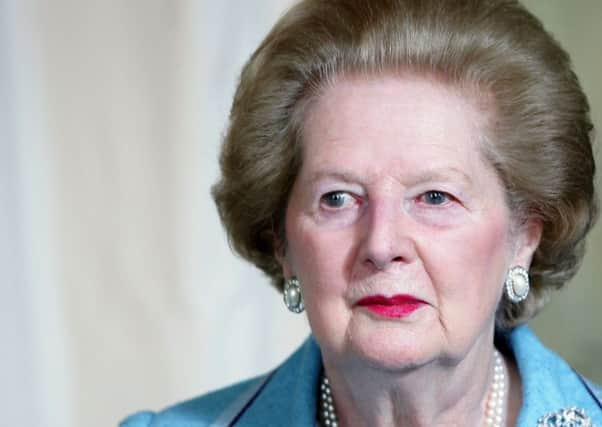John McTernan: Thatcher legacy influenced vote


In the end, it was Margaret Thatcher who won it for the Union. That may seem an odd thing to say when her name was invoked by so many on the Yes side to express why Scotland should quit the UK. But it’s an uncomfortable truth that Margaret Thatcher made modern Scotland what it is today – a middle class, home-owning nation.
Advertisement
Hide AdAdvertisement
Hide AdIn 1979, half of all Scots lived in a council house. Thanks to the right to buy, we now have the same rate of home ownership as the rest of the country. Judging by the way that the schemes in the west of Scotland voted, if we’d still been a country in which the majority of us lived in social housing nation the referendum would have been a runaway victory for Yes.


That change in ownership had a profound political effect. As one activist said to me: “There’s no stronger No than a bought council house.” Which I found, when I was canvassing and knocking up, was absolutely true. The difference is that this new constituency of home owners did not then cleave to the Tories. Instead they abandoned them for the Labour Party and helped create a proto-New Labour alliance of working class and middle class Scots who first drove the Tories out of Scotland and then helped sweep New Labour to power.
The new middle classes became the largest class in Scotland in the 90s. They are why Scottish Labour received a swing of 3 per cent to it in 2010 even as the rest of the Labour Party was facing the third worst election defeat in its history. They have been wooed by the SNP who have assiduously developed an expensive middle class welfare state – the free stuff only benefits them. But the middle classes simply refused to back the breaking up of Britain.
In some ways this is a very Scottish story – the rapid development of an urban middle class benefiting from Scotland’s reindustrialisation as a knowledge economy. In other ways it is reminiscent of the Ukip story. The hordes of voters the SNP wooed from the Labour Party to take the referendum to the wire are the non-home owning working class. They are the victims of globalisation, just as the voters in Aberdeen, Edinburgh and East Renfrewshire are the winners from the changing economy.
The cleavage between the dispossessed and the owner-occupiers has, briefly, turned the electoral map of Scotland on its head: Labour’s core supporters voting Yes, and the SNP’s heartlands – Morayshire, Perthshire, Aberdeenshire – rejecting separation.
What is intriguing is what the next moves are.
For the SNP this is the end of a journey. If there is no return to this issue for a generation, what is their project? It is, for sure, not social democracy – that language was adopted as a tactic to attract Labour voters. For Labour, it is the chance to reclaim the mantle as Scotland’s progressive party. They need a joint Gordon Brown and Jim Murphy road show to tell people about the new powers and to sell the party’s new progressive purpose. For the Tories it is the end of an era. Ruth Davidson’s campaign has detoxified them. And with Middle Scotland voting No so strongly we can say that not only did Margaret Thatcher save the union, but in doing so she exorcised her own influence on Scottish politics, too.